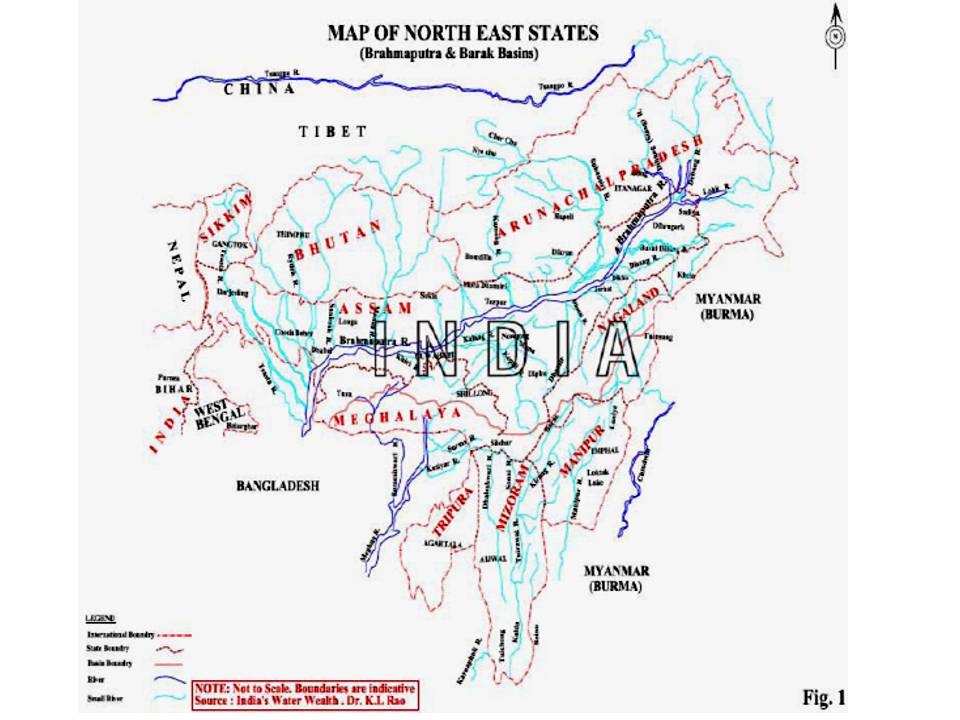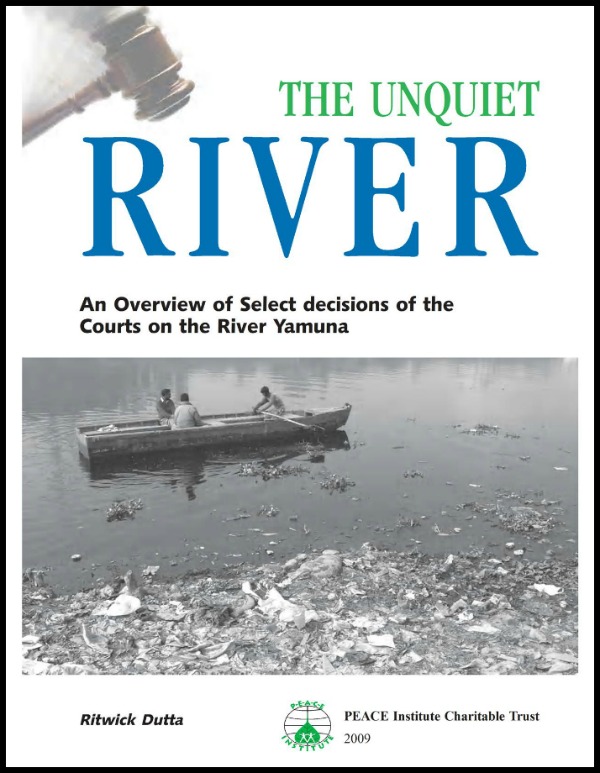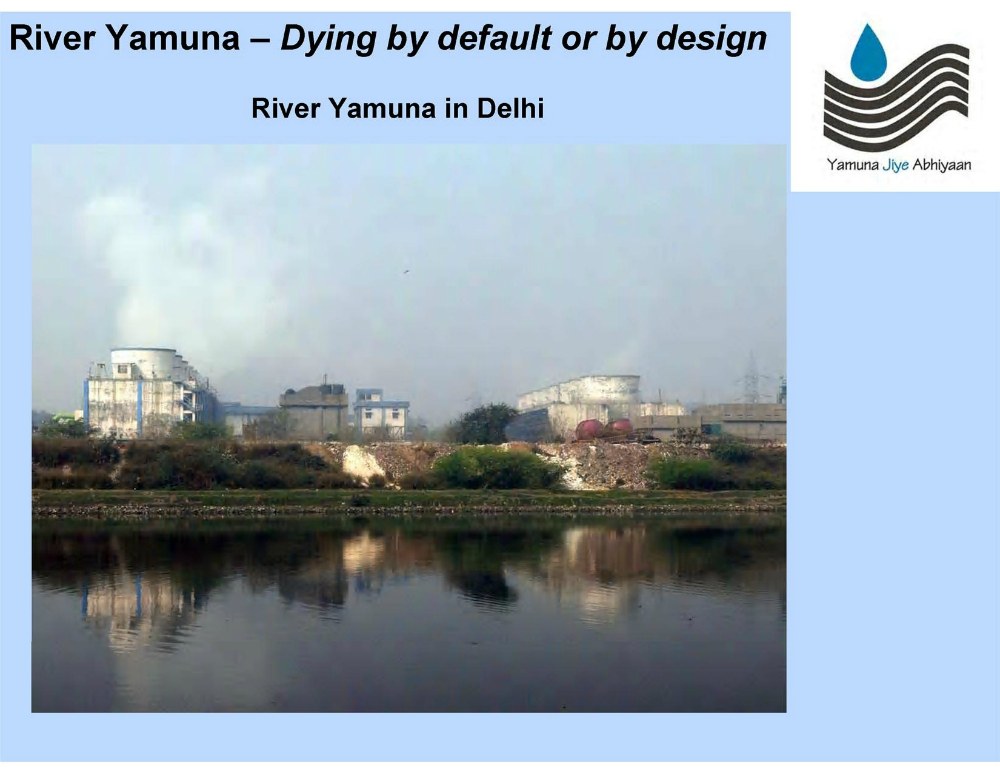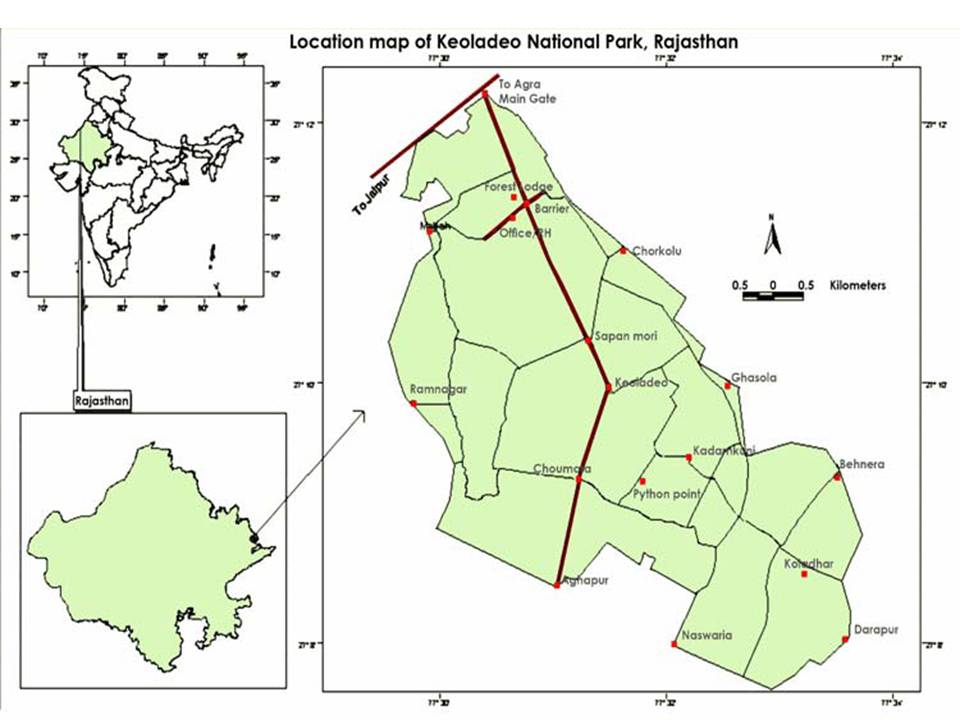/topics/surface-water
Surface Water
Hydropower in the Northeast: Potential and harnessing analysis - A critique
Posted on 15 Jan, 2012 11:41 PMThe main objectives of the hydropower study are as follows:
- An analysis of the hydropower potential in the Northeast and key elements of the strategy that should be followed for optimal realization of this potential
- An overview of the hydropower development options in the Northeast with regard to the water resources in the different river basins, including consideration of flood control and irrigation

Map of the north-east states
SANDRP invites applications for a Researcher, Delhi
Posted on 15 Jan, 2012 09:29 AM
South Asia Network on Dams, Rivers and People (SANDRP), an informal network working on issues related to rivers, large dams and their impacts,sustainability and governance is looking for a Researcher.
The unquiet river: An overview of select decisions of the courts on the river Yamuna
Posted on 14 Jan, 2012 06:40 PMThe river has attained the distinction of being perhaps the river attracting the most judicial attention in india, after the Ganga. This report analyses the various laws and judicial decisions pertaining to the Yamuna and their effects on the river.
River Yamuna - Dying by default or by design: A public lecture on river Yamuna
Posted on 14 Jan, 2012 05:24 PMIt aims to inform, enlighten and suggest solutions to bring back the river Yamuna to a healthy and resilient state.

India, Pakistan and water - Lecture by Ramaswamy Iyer at MIDS
Posted on 12 Jan, 2012 10:57 PMIt traces the roots of the conflicts to the strained relations between India and Pakistan following the partition and the framing of the Indus Water Treaty in 1960.
One day seminar ‘What we must do to save the rivers of Maharashtra’, NWO, Pune, January 30, 2012
Posted on 12 Jan, 2012 10:21 AMOrganizers: National Womens Organization (NWO),
Gandhi National Memorial Society(GNMS),
National Ganga River Basin Authority (NGRBA).
Wetlands for water quality management – The science and technology: A paper from Current Issues in Water Management
Posted on 10 Jan, 2012 10:24 PMThe introduction begins witha brief overview of wetlands: their nature and services offered. These wetlands are ecosystems with water that is static or flowing and characerized by emergent , floating and submerged aquatic vegetation. Some of the services provided by wetlands are fish and fiber, water supply, water purification, flood regulation, recreational opportunities and tourism. It then details the importance of wetlands for water purification.Toxins enter the wetlands through farms, factories and runoff. These toxins are broken down or otherwise buried using a variety of bacteria.

Location map of Keoladeo National Park
Changing currents: Plumbing the rights: A film highlighting water as a common good
Posted on 10 Jan, 2012 08:55 PMSource: Culture Unplugged
Shades of blue: A symposium on emerging conflicts and challenges around water - Seminar magazine
Posted on 10 Jan, 2012 07:53 PM(as posed by Sunjoy Joshi, Director and Distinguished Fellow, Observer Research Foundation, Delhi)
Democratisation of water management - The experience of Tamil Nadu with governance reforms
Posted on 09 Jan, 2012 12:18 PMNor is the introduction of the private sector and the reduction in the role of the government going to help. Rather, the time has come to introduce changes at the basic or the fundamental level in the way in which the water sector functions.
There is an urgent need to bring about reforms in governance by moving towards decentralisation and democratisation, leading to involvement of people from all the sections of the society, who know and understand that they are responsible for the system and its functioning, as well as by introducing principles of equity and social justice. The papers demonstrate the successful implementation of this approach by describing the experience of Tamil Nadu at democratising water management through introduction of reforms at the level of governance, through involvement of the Tamil Nadu Water Supply and Drainage Board (TWAD).





